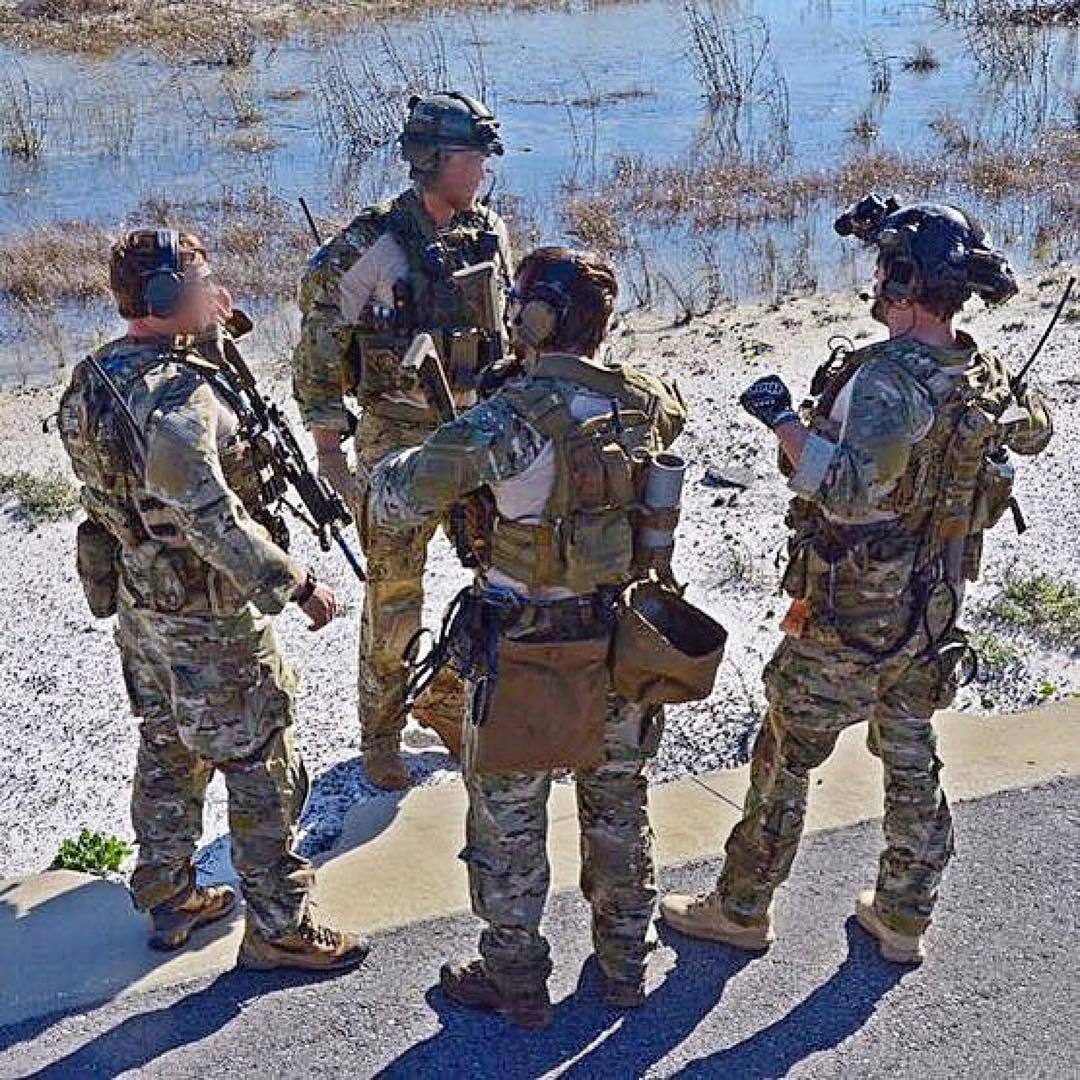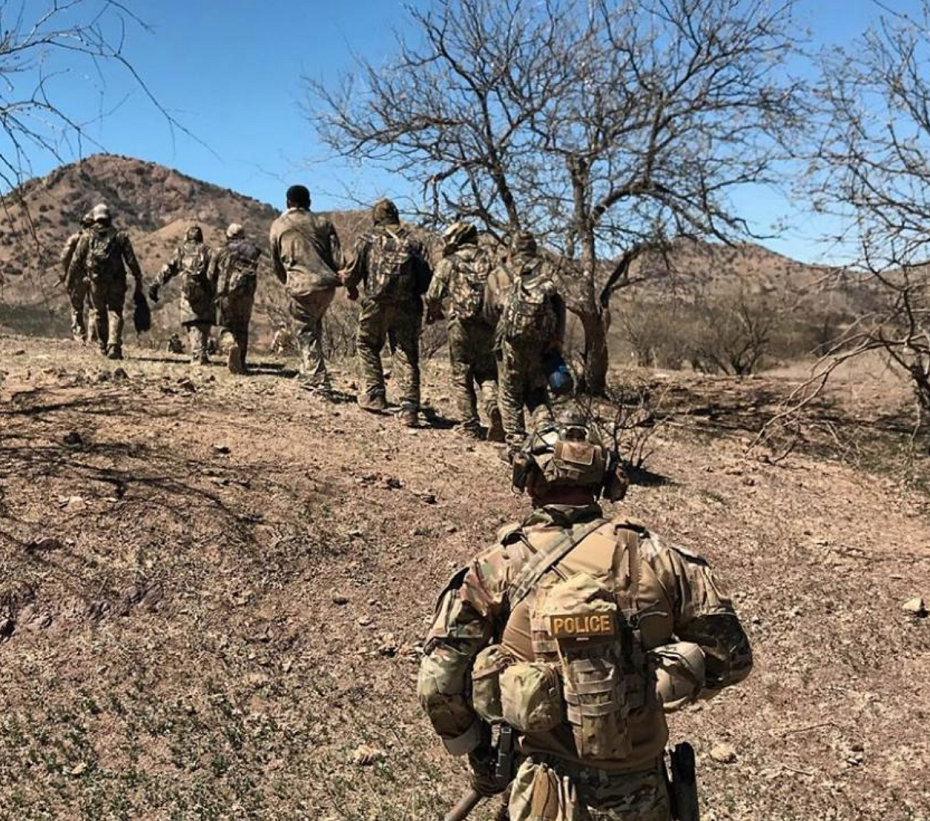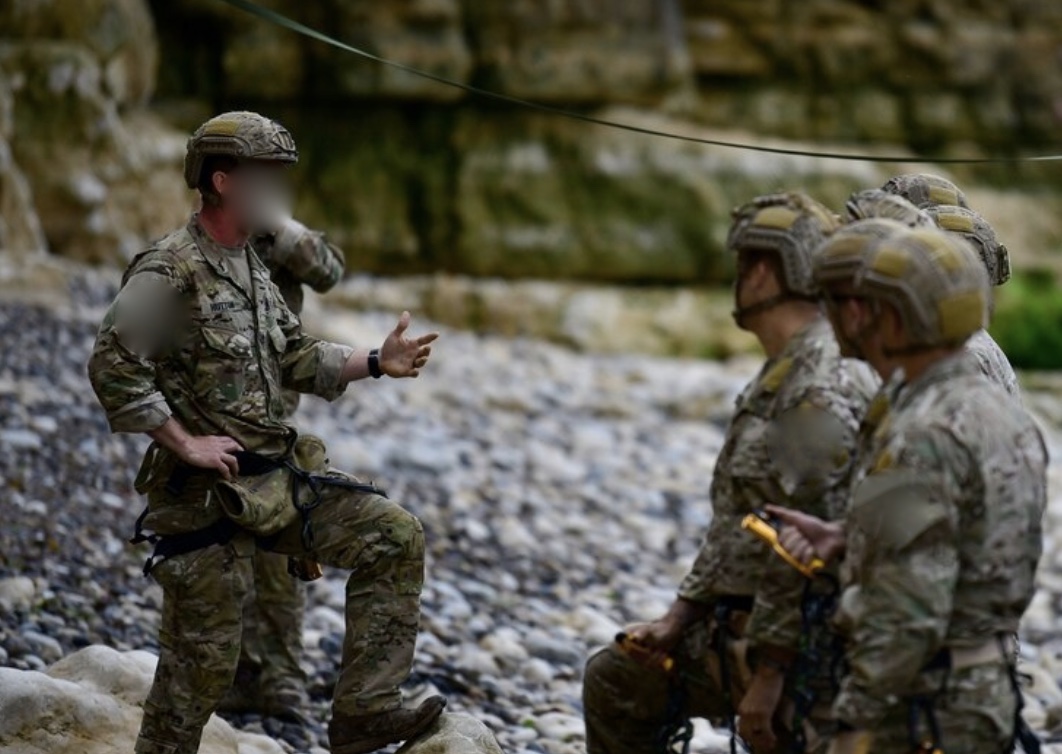In Today’s Complex World of Law Enforcement, We Need Leaders, Not Managers

In today’s complex world, law enforcement operations demand we have leaders, not managers. Throughout my 21-year career in federal law enforcement, it has been the culture to refer to supervisory and senior executive staff as “managers” first. If someone says “leader” and your name is in the same sentence, it is a compliment. It’s unfortunate and unacceptable. I have had the unique opportunity to work with some of the largest agencies across the nation and this is a common thread…..those who are empowered to lead us at our organizations are almost always identified as “management”. Many of those selected to lead their organizations or units consider themselves “managers” as well. In an article published in the FBI Law Enforcement Bulletin, “Perspective: Principles of Effective Leadership in Law Enforcement”, the author leverages leadership qualities to reinforce being a better “manager”. This emphasizes my point, this is systemic in our institution and as a whole, we have failed to professionally develop true leaders in our organizations.
What is the difference between “managers” and “leaders”? Warren G. Bennis, an American Scholar in Leadership Development wrote: “The manager administers; the leader innovates. The manager has a short-range view; the leader has a long-range perspective. The manager asks how and when; the leader asks what and why. The manager has his eye on the bottom line; the leader has his eye on the horizon. The manager accepts the status quo; the leader challenges it.” I was taught something similar, just in different context, as a young NCO, “We manage time and tasks – We lead people”.
This 3-part series of articles I am going to take the reader on a journey through the foundation of effective leadership, as used by our military institutions. The principles, competencies and attributes all have bearing in our industry and when cultivated properly and used as a professional and personal compass, create a culture of fine leadership.

Our organizations need critical thinkers and innovators that can extend influence beyond the chain of command. This is especially important for our law enforcement special operations and intelligence units across the country to be effective against evolving threats. General Stanley McChrystal describes it perfectly in his book “Team of Teams: New Rules of Engagement for a Complex World”. Complexity produces a fundamentally different situation from the complicated challenges of the past; complicated problems required great effort but ultimately yielded to prediction. Complexity means that, in spite of our increased abilities to track and measure, the world has become, in many ways, vastly less predictable.” The new environment requires new approaches; using common criminal templates for existential threats does not allow for freedom of action and equally creates our own predictability. This is very dangerous in the world of combating terrorism and well organized transnational criminal organizations. How many of our leaders in the tactical law enforcement world truly understand this? Many tactical team commanders and leaders use common criminal templates to resolve situations and this will ultimately lead to mission failure and get people hurt. My agency and unit found this out the hard way between the years of 2005 and 2013 in Arizona.
What makes me a subject matter expert in leadership? Nothing! I do not have a master’s degree or PHD in leadership. What I do possess is being fortunate enough to be mentored by, led by and to lead some of the most amazing human beings on the planet. Truly innovative people who believed in the mission and shaping our environment, most importantly, trusted and challenged their troops to be the best they can be. I have also served under or witnessed bad leadership, who did serious damage to our organization and created very toxic environments that rapidly eroded morale and affected performing the mission efficiently. I started my career in law enforcement in 1998 with the United States Border Patrol. The Border Patrol from its inception in 1924 has had the biggest challenge in law enforcement, securing our nations border. It became even more challenging and complex post 9/11. Our operational capabilities increased all the while transitioning from the Immigration and Naturalization Service (Dept. of Justice) and becoming our own autonomous agency under the new Department of Homeland Security. As the focus of securing our border in Arizona became a national priority, the transnational criminal organizations were fighting their own war south of the border. The ripple effect caused violence and unrest to leak into the U.S. To make matters even more complicated, the criminal organizations were becoming more technologically advanced and more decentralized. This made it very difficult to make a significant impact in their operations, you can take out one cell, but the drugs, people, guns and money continued to flow across the border. We were not being effective in any means outside of the statistical terms and people were getting hurt doing it. This was due to the fact we were applying a common interdiction template to combat an evolving and complex threat. We had to be innovative, shape our environment and leverage force multipliers and resources that were new to our organization.

During those trying times, I honestly believe that we had good leaders running our organization in Tucson, Az, not all of them were perfect or easy to work for but for the most part, they believed in the mission and the welfare of the troops on the ground. They were open, challenged their subordinates, had influence beyond the chain of command and had the professional courage to allow innovative people to exercise their talents. We still had “managers”, as per the definition but they were mostly placed in positions that had little effect on the strategic or operational decisions being made. Many of these folks often left the ranks and took positions in Washington, D.C. at our newly established headquarters. This would come back to haunt us later in time, for these same personnel with limited professional development, limited field experience and lacking any type of leadership qualities at all, began to promote into key leadership positions. These folks became extremely risk averse and were seriously deficient in professional courage. If our organization rated and developed leaders to the standards of the 11 Principles of Leadership, our organization would not have half of the issues it currently suffers resulting from poor leaders.
I have made plenty of mistakes as a leader, I did my best to learn from them and to never repeat them. I am and have always been a forward-thinking individual, not afraid to try something new or think outside of the box. It has always been about the mission first. This mindset was reinforced in my career when I read a very influential book “The Mission, the Men and Me: Lessons from a Former Delta Force Commander” by Pete Blaber. In this book, he discusses the “3Ms”, “Mission, Men and Me”. He explains that the 3Ms were one of his first lessons as a young lieutenant during a mentoring session with his battalion commander. The first M is the Mission, he explains the sole purpose of what we do as a leader is for the Mission, it is indisputable, …”make sure you understand it [mission or task] and that it makes legal, moral and ethical sense, then use it to guide your decisions”. The second M, the Men (your personnel), a leader “must care for their welfare, and he/she must show courage. Welfare and courage are inextricably linked. Always have the courage of your convictions to do the right thing by them.” The final M stands for Me, …”Never put your own personal well-being, or advancement, ahead of the accomplishment of your mission and taking care of your [personnel]…”
Regrettably, there are too many in key leadership positions that put the “Me” before the Mission or the welfare of their personnel.
PRINCIPLES OF EFFECTIVE LEADERSHIP
Some believe that there are those who are “natural born leaders”. I beg to differ, I think there are persons who have the natural ability to be effective leaders, for they possess strong moral convictions and values, yet they still require cultivation and mentoring. The military is very effective at bringing out these quality attributes and competencies. It all begins with knowing the 11 Principles of Effective Leadership and how they apply to our everyday lives, both personally and professionally.
1. Know yourself and seek self-improvement – . Effective leaders are life-long learners, those who think they know everything or have nothing left to learn will ultimately fail as a leader. When you think you know it all, you cannot adapt to new environments.
How many of us truly take a look in the mirror and honestly see our strengths and deficiencies? How many of us seek critique and mentoring from those who will tell us what we don’t want to hear? I have always endeavored myself to be on a continuous upward learning cycle. Seek those who are talented at what they do and how they do it, learn from them and apply it to your environment
2. Be technically and tactically proficient – This is where the rubber hits the road for many. Serving under a leader that is deficient technically and tactically, creates a great amount of friction and mistrust within an organization. A leader does not have to be the best shooter, the best tactician or the best planner but he or she has to be extremely proficient at all of them and continuously improve. Take for instance the use of force multipliers, if a leader does not know or understand how that asset or resource works and what its full capabilities are, how can he or she effectively leverage it in support of their operations? What typically happens is they choose not to use it, which can have dire consequences.
This also goes back to one of my earlier statements, using common criminal templates. I will go as far as this, if you cannot get outside of using common criminal “police” action templates, then you are not tactically proficient. Having an extremely well-educated platform enables you to make quality decisions in real time when things are in the “gray” area. Circles right back to bullet 1, always seek self-improvement.
3. Know your personnel and look out for their welfare – Depending on the level of command or supervision you lead at will dictate how in-depth you know your personnel. Within the tactical special operations world, the Commander to the Team Leader should know each one of your personnel and capabilities intimately. I say this at every class I teach, if you truly know your personnel, you can do more with less and do it very efficiently.
Looking out for their welfare relates to knowing how hard we can push them operationally. Obtaining equipment and support required to perform their mission safely and to the utmost efficiency. Creating a team environment and environment of checks and balances, most of all, that we all hold each other accountable, from the bottom to the top.
4. Keep your personnel informed – This means consistent communication with your personnel regarding the mission, expectations, guidance and policies. If you’re going to hold them accountable, set them up for success. This means much more than sending out emails and memos. It means so much more on an intellectual basis as well, as Deputy Commander I made it a point to keep my folks apprised of new TTPs being used across the globe by transnational criminal organizations and other tactical teams. I have always told folks, knowledge is power, the more we know, the more efficiently your unit will problem solve.

5. Set the example – This is related to Bullet 2 and it directly corresponds with how you conduct yourself both personally and professionally. Too many leaders have an expectation as to how their troops will conduct themselves day in and day out and hang them out to dry when they violate those standards. Conversely these leaders will conduct their daily lives to a different and lesser standard. It is a double-standard and unbecoming of a leader. Never be below taking out the trash.
6. Ensure the task is understood, supervised, and accomplished – This is one of the most important functions as a leader. Whether you are conducting daily collateral duties or enforcement operations, we have a duty as leaders to ensure that our folks are accomplishing these tasks to the standard. This requires personal communication, not electronic communication. Do not use ambiguous language, be clear and concise. Use technology to its advantage, don’t take the path of least resistance and not follow up and ensure the task is supervised and accomplished to the standard you set!
7. Train your unit as a team – This is self-explanatory.
8. Make sound and timely decisions – Not only must we make sound and timely decisions; we have to make informed decisions. This is based on context obtained through our continual improvement of understanding our environment and adversary. I used to tell my boss all of the time, my job was to set him up for success, by providing him as much information and drive him to a decision point. I expected the same of my team leaders as a Deputy Commander. When you empower your subordinate leaders, they can be a great asset for you to make those sound and timely decisions.
9. Develop a sense of responsibility among your subordinates – The late General Hal Moore provided key insight into how a leader should act in regard to his or her subordinates. “A leader should never be arrogant, spiteful, condescending or engage in gossip; act with humility and treat subordinates with respect and dignity”. This lends to a positive team cohesive unit where everyone under your command will seek responsibility.
General Stanley McChrystal takes a bolder stance and describes building a “Shared Consciousness” in his book “Team of Teams”. Having a shared consciousness will lead to empowered execution, meaning anyone can take action without requiring prior approval as long as the contextual information is provided to key leaders. This is why I am a big fan of Centralized Command and Decentralized Control. It fosters a sense of duty and responsibility by creating a “freedom of action” environment.
10. Employ your command in accordance with its capabilities – If a leader is not technically and tactically proficient, nor understands the full capabilities of the personnel and the unit, a leader will never have audacity. Instead, they will be risk averse which is almost always based on a lack of context and leads to unnecessary friction or failure. It is toxic to work for someone who is risk averse, more so when you know it is because they lack knowledge and do not fully know or appreciate the capabilities of their unit and personnel.
11. Seek responsibility and take responsibility for your actions – As a leader, I spent a lot of my time searching out challenges, even if it was outside of my wheelhouse. It was never for personal gain, it was always about having better context; politically, environmentally and tactically. This allowed me to build trust with my senior leadership which resulted in additional freedom. It also greatly assisted me when making time sensitive decisions. I never hesitated to take command of a critical incident, even when it was outside of my comfort zone. For example, in 2009 as a new Deputy Commander for Tucson BORTAC, I was unexpectedly appointed as the Tactical Incident Commander for a large manhunt. I was in charge of 32 Federal, State and Local tactical teams. It was very intimidating, but this is an example of growth as a leader, seek out that responsibility and challenge yourself! If things go sideways, own it. That’s the only way you can grow as an effective leader.
CLOSING
As you have figured out, I am not the good idea fairy providing some new and earth-shattering insight into leadership. Quite the contrary, I am presenting the tried and true principles that our war fighting institutions use and many Fortune 500 Corporations have adapted. This is because these principles have been refined over the last 200 years and developed some of the best leaders in the world, therefore it would be in our best interests to apply them to our own environment. The next two parts of this series I will take a deep dive into the competencies and attributes of an effective leader, where I will apply real life experiences to support them.
Works Cited
Headquarters, Department of the Army. ADP 6-22, Army Leadership and the Profession, July 2019.
Blaber, Pete. The Mission, the Men, and Me: Lessons from a Former Delta Force Commander. Dutton Caliber, 2017.
Cain, Nicole. “What Makes an Effective Law Enforcement Leader?”. In Public Safety, August 25, 2017. https://inpublicsafety.com/2017/08/what-makes-an-effective-law-enforcement-leader/
McChrystal, Stanley, et al. Team of Teams: New Rules of Engagement for a Complex World. Adfo Books, 2015.
Willis, Dan. “Perspective: Principles of Effective Leadership in Law Enforcement”. FBI Law Enforcement Bulletin, March 1, 2011. https://leb.fbi.gov/articles/perspective/perspective-principles-of-effective-law-enforcement-leadership





